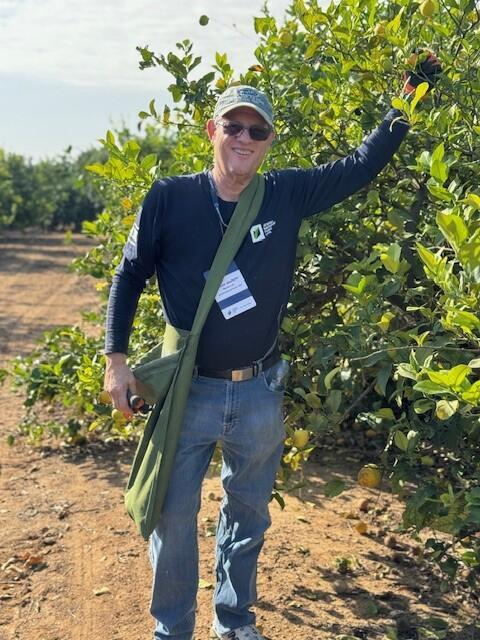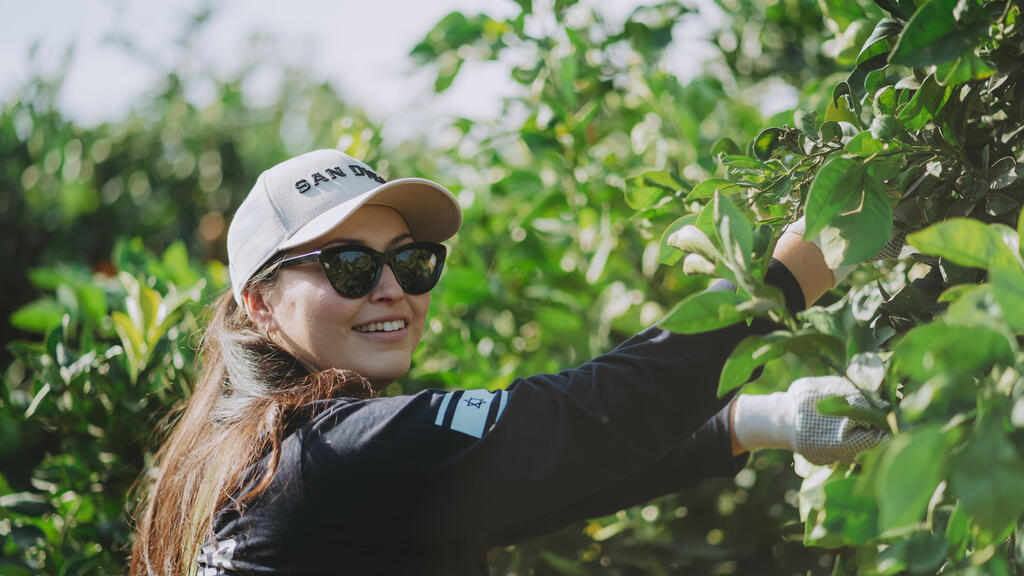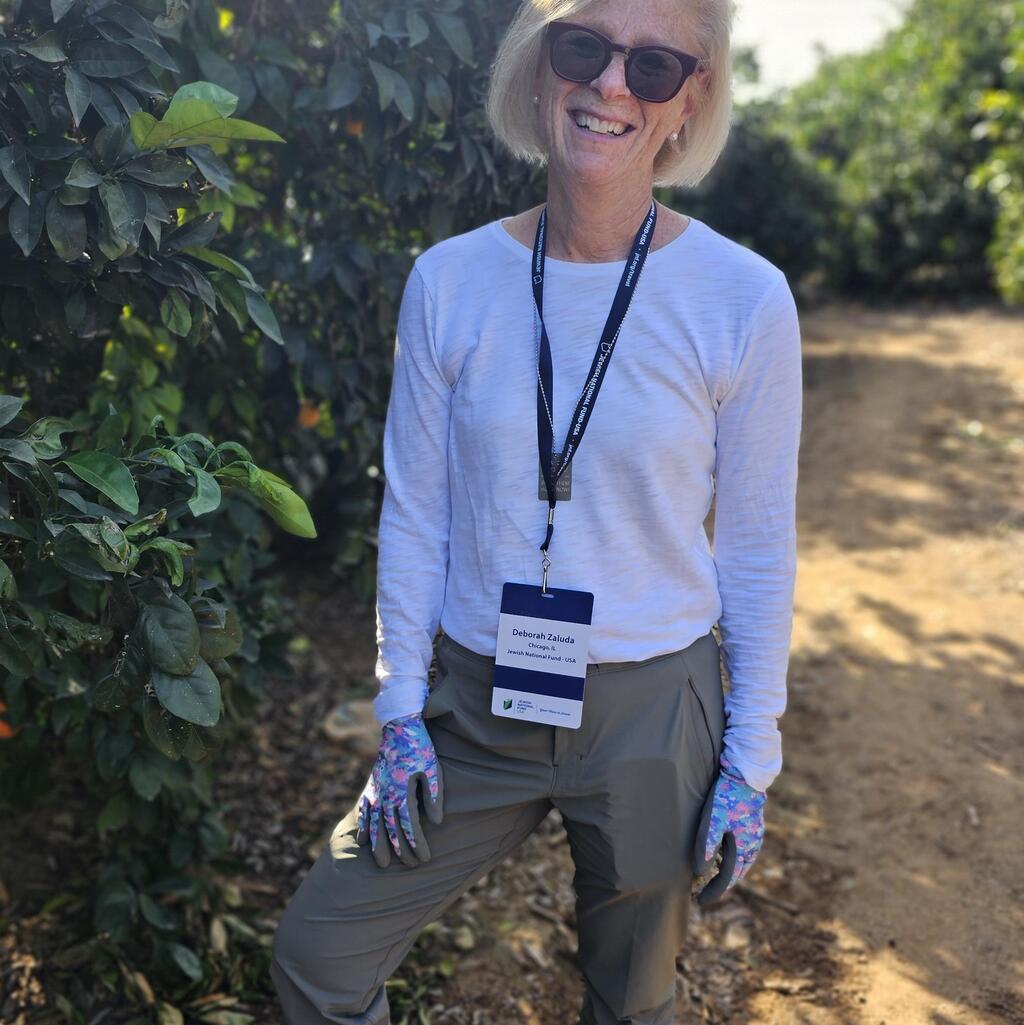Getting your Trinity Audio player ready...
JNF-USA FOR ISRAEL
Memories of the Yom Kippur War came flooding back to Arnold Abelman following the October 7 massacre in southern Israel. Now, just as he did back in 1973, Abelman traveled from his home in the American state of Georgia to Israel to roll up his sleeves and support communities in need.
More stories:
Reflecting on his 11-month stint in Israel during the Yom Kippur War, he expressed a renewed sense of purpose and determination today. “Thinking back on this experience, I was intent on helping but felt powerless because, at 71, I figured I was just too old. So, when the email from Jewish National Fund-USA came along offering volunteering opportunities, I jumped on it almost immediately.”
While most associate Jewish National Fund-USA with its iconic Blue Box and tree planting, the organization’s primary focus in recent decades has been on attracting 800,000 new residents to Israel’s Negev desert in the south and Galilee in the north. The philanthropy’s supporters have felt a highly personal connection to the recent attacks, given their long-term support for the communities and people most affected by Hamas’ terror.
The organization’s Travel and Tours Department would usually be planning to bring thousands of American tourists to Israel. However, due to the current conflict, tourism to the Holy Land has ground to a halt. Miraculously, hundreds of Americans like Abelman have signed up for a different kind of travel experience through its Volunteer Missions to Israel, with many trips already sold out.
For Chicago-based philanthropist Deb Lust Zaluda, taking part in Jewish National Fund-USA’s inaugural volunteer mission in mid-December affected her in unexpected ways.
“I wanted to have an impact in Israel, make a difference, do something, feel useful; however, what I didn’t expect was the impact the mission would have on me,” said Lust Zaluda, who is also the organization’s assistant VP of Missions.
“Yes, we pulled weeds so that the fields of green onions didn’t suffocate and could be harvested when it was time. We picked citrus, which would have gone rotten on the trees if not for us. But more importantly, we listened. We listened to the story of the lone soldier from Texas, Noah, who went back into the army after being released so he could join his unit in Gaza. We heard from Erez, a citrus farmer in the south of Israel, whose family was evicted from Tunisia in the early 1950s with just the clothes on their backs. Erez’s family knew nothing of farming when they arrived in Israel, but they helped make the desert bloom in the Negev through their grit and determination,” she said.
“Erez, after looking at our group of volunteers, was truly shocked by how much we did – as his level of trust in the future had been shattered,” Lust Zaluda added.
3 View gallery


Arnold Abelman picking citrus on an Israeli farm next Gaza
(Photo: Courtesy of Arnold Abelman)
The Volunteer in Israel Mission encompasses various activities to address the multifaceted challenges brought about by the conflict. The volunteers spend time with evacuees and those providing lifesaving efforts, offering a helping hand in various capacities, from cooking to assistance in daycares, laundry and cleanup.
A significant aspect of the program involves collaboration with HaShomer HaChadash, a volunteer organization that assists farmers and ranchers with a focus on agricultural volunteering. Volunteers pick vegetables and other crops, helping to ensure Israel’s food security. Participants also volunteer with Sar-El at an army base, taking on logistical functions necessary to fill the void left by the over 350,000 Israelis currently serving in the IDF and reserves.
Despite launching just weeks ago, the volunteer missions have already garnered heartfelt feedback from participants who highlighted the transformative impact of their experiences.
Kris Oppermann Stern from Colorado shared her poignant experience in Sderot at Moshav Tlamim, where volunteers picked four tons of citrus fruits. Stern described the complex emotions and drive for unity the volunteer group experienced as they met with local farmers.
“The feeling of seeking justice was pervasive as we listened to one of the soldiers who was immediately mobilized to save lives, then to save farms,” said Oppermann Stern. “A theme emerges: ‘Build Back Together’ – unity is the key. The farmers expect two years of war, and they say all Israelis are asking what the ‘day after’ will look like. As supporters of Israel, we are embarking on the mission of our lives. We must be a team and rebuild together.”
Oppermann Stern was also surprised by how safe she felt. “Although the artillery sounds were frequent, soon they faded into the background as we picked the fruit and marveled at how Israelis were able to turn the desert into magnificent farmland. The Iron Dome intercepted rockets while we worked, and it’s funny how safe we all felt.”
Fellow participant Karen Kolodny from Wyoming also emphasized the resilience she witnessed and the determination to rebuild the Jewish State’s battered economy: “We felt true resilience in the face of the enemy, an undeniable attitude to continue until a complete victory…and the determination to rebuild a better and stronger Israel and Israeli society. Israel’s economy will need a real boost. First, there was COVID, then there were the judicial reform protests, and now there is war and the collapse of the tourism industry. The shopkeepers on Ben Yehuda Street were so grateful for our business.”
As Israelis and Diaspora communities pray for a peaceful future, Kolodny is confident the country’s best days are ahead of it.
“Israel will bounce back! On the same day, we saw a soldier rehabbing after he had suffered substantial wounds; we were in a shopping mall in Jerusalem and saw families eating and laughing around their Thursday evening night out. For us, this symbolized the juxtaposition of a country at war and, at the same time, people understanding that life must continue. Anything short of that attitude and the enemy has won,” she said.
First published: 17:17, 12.24.23







